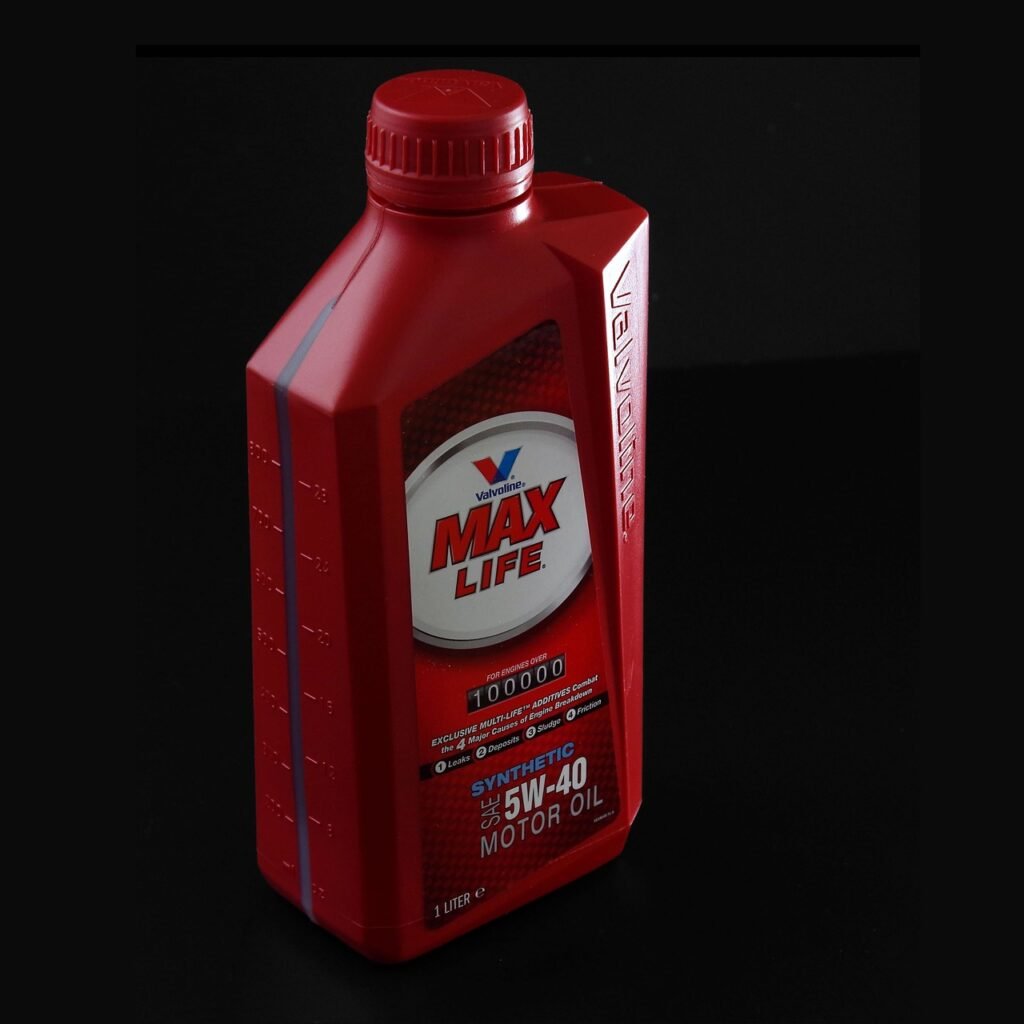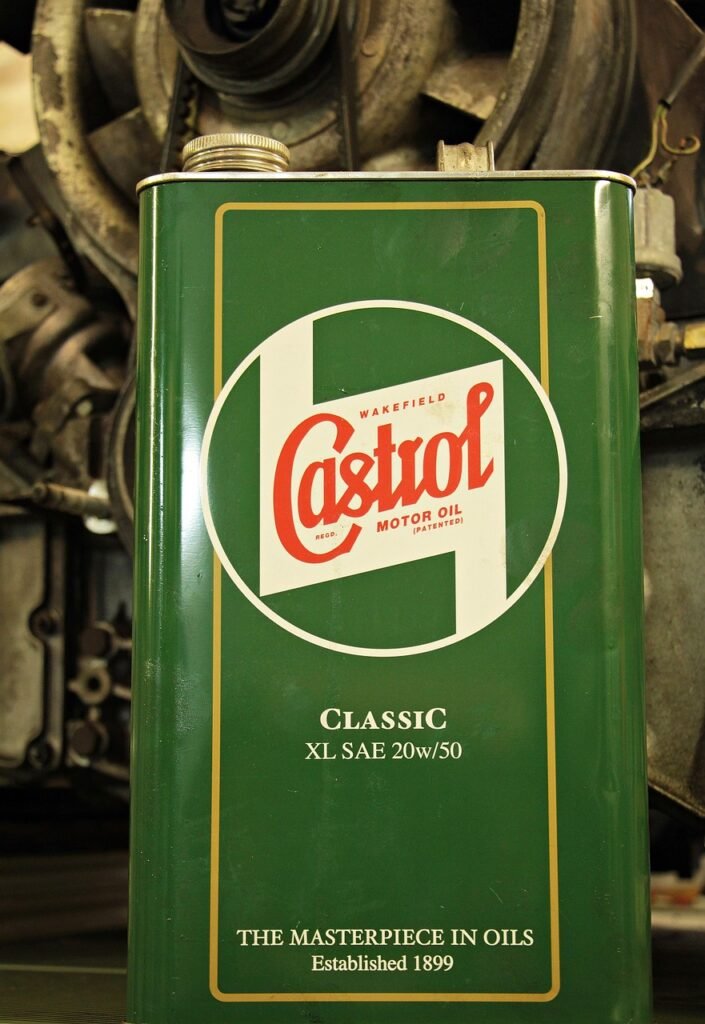
You know that feeling of hitting the open road with confidence in your vehicle’s performance? Achieving that starts with something as simple as selecting the right engine oil. Navigating the sea of options can be overwhelming, but don’t worry, this guide is your compass. In “How to Choose the Right Engine Oil for Your Vehicle,” you’ll unlock the mysteries of viscosity ratings, understand the significance of different oil types, and learn how to spot the telltale signs your car is crying out for a change. Buckle up for a smoother ride; your engine’s perfect match is just a few pages away.

This image is property of pixabay.com.
Understanding Engine Oil Basics
Before diving into the specifics, it’s essential to understand why engine oil is such a critical component of your vehicle’s health.
Functions of Engine Oil
The primary role of engine oil is to lubricate the moving parts within your engine, reducing friction and wear. But it’s much more than just a lubricant; it also helps to clean, cool, and protect your engine. It carries away dirt and debris, which are then filtered out. The oil helps dissipate heat away from the combustion cycle and prevents the buildup of harmful substances.
Different Types of Engine Lubricants
You’ll encounter various types of engine lubricants, each with a specific purpose and formulation. These include conventional oil, which is derived from crude oil; synthetic oil, which is engineered with chemical compounds to provide superior performance; and semi-synthetic oil, which blends the two. There are also special blends for high-mileage vehicles and other specific engine types.
Oil Viscosity and Why It Matters
Viscosity refers to the thickness or thinness of oil and impacts how it flows in the engine. The right viscosity is crucial for ensuring your engine is well-protected across different temperatures and operating conditions.
Reading Engine Oil Labels
When you’re reading an engine oil label, you’ll see a set of letters and numbers – this is the oil’s viscosity rating. Additionally, look for performance standards (like API or ILSAC ratings) as these indicators help ensure you’re choosing an oil that meets the required specifications for your vehicle.
Factors Determining the Choice of Engine Oil
Choosing the right engine oil isn’t one-size-fits-all – it’s influenced by several factors.
Vehicle Age and Engine Design
Older engines may have different requirements than newer ones, and designs vary even within the same manufacturer’s line-up. Higher-mileage engines often benefit from specific high-mileage oils.
Manufacturer Recommendations
Your vehicle’s manufacturer provides recommendations for the type of oil that is best for your engine. This information can be found in the owner’s manual and should be a primary consideration.
Driving Conditions and Climate
The conditions you drive in – be it stop-and-go traffic or long freeway hauls – as well as the climate you live in will impact your choice of oil viscosity.
Performance Requirements
If you’re running a high-performance engine or regularly carry heavy loads, your engine oil needs will differ to ensure proper protection and efficiency.
Oil Quality and Industry Standards
Oil quality is regulated through several industry standards that ensure consistency and performance.
API (American Petroleum Institute) Ratings
API ratings signify the oil’s performance level and whether it’s suitable for gasoline or diesel engines. These ratings are marked with “S” for Service (gasoline) and “C” for Commercial (diesel).
ACEA (Association des Constructeurs Europeens d’Automobiles) Classifications
European vehicles often reference ACEA classifications, which have different performance criteria than API ratings.
ILSAC (International Lubricant Standardization and Approval Committee) Standards
ILSAC standards pertain mainly to improving fuel efficiency and reducing oil volatility and emissions.
Understanding OEM (Original Equipment Manufacturer) Approvals
OEM approvals are certifications by vehicle manufacturers that an engine oil meets the specific requirements for their vehicles. This is a strong endorsement of an oil’s quality and compatibility.
Synthetic vs. Conventional Oil
The debate between synthetic and conventional oil is ongoing, with each having its merits.
Pros and Cons of Synthetic Oil
Synthetic oil offers superior performance in extreme temperatures and typically provides better engine protection. However, it comes at a higher cost.
Pros and Cons of Conventional Oil
Conventional oil is generally cheaper and perfectly adequate for many engines, but may not perform as well under harsh conditions or offer as much protection as synthetic oils.
Semi-Synthetic Oils: A Middle Ground
Mixing conventional and synthetic oils, semi-synthetic offer better performance than conventional oil but at a lower price point than full synthetic oil.
Cost Comparisons
When comparing costs, balance the price difference with potential benefits, such as extended oil change intervals and better engine protection offered by synthetic oils.

This image is property of pixabay.com.
Viscosity Grades and Their Significance
Knowing about viscosity grades can help you choose an oil that will perform best in your vehicle.
Single-Grade Oils Explained
Single-grade oils are designed to work at specific temperatures. They’re less versatile than multi-grade oils and typically used in simpler or older engine designs.
Multi-Grade Oils and Their Advantages
Multi-grade oils are formulated to perform across a wider temperature range, making them suitable for use in a variety of climates.
How Temperature Influences Viscosity
Temperature drastically affects oil viscosity. In cold weather, oil thickens; in hot weather, it thins. The right multi-grade oil will adapt accordingly.
Choosing the Right Viscosity for Your Climate
Your selection of oil should reflect the temperature range expected in your area. Consult your owner’s manual for manufacturer recommendations that consider climate.
High Mileage Oils for Older Vehicles
As vehicles age, their engine oil needs can evolve.
What Constitutes a High Mileage Vehicle?
Typically, a high mileage vehicle is one that has traveled more than 75,000 miles. Such cars may have unique engine conditions that high mileage oils are formulated to address.
Special Additives in High Mileage Oils
High mileage oils often contain additives designed to recondition seals and reduce leaks, which can be common in older engines.
Benefits of High Mileage Oils
Using high mileage oils can extend the life of an older vehicle by reducing oil burn-off and protecting against engine wear.
When to Switch to a High Mileage Oil
Consider switching to a high mileage oil if your vehicle has 75,000 miles or more, or is beginning to show signs of age, such as oil leaks or consumption.

This image is property of pixabay.com.
The Role of Additives in Engine Oils
Additives are essential to the functionality of engine oils.
Common Types of Additives
Typical additives include detergents, antioxidants, corrosion inhibitors, and friction modifiers, each serving a distinct purpose.
Functions of Additives in Engine Performance
These additives can help maintain engine cleanliness, protect against oxidation and corrosion, and improve the lubricating properties of the oil.
Additives for Engine Cleanliness
Detergents and dispersants in the oil help to clean the engine by preventing contaminants from forming deposits.
Additives for Wear Protection
Zinc dialkyldithiophosphate (ZDDP) is a commonly used additive that delivers anti-wear properties and extends the life of engine components.
Changing Oil: Time-Based vs. Condition-Based
Knowing when to change your oil will ensure your engine remains in top condition.
Understanding Oil Change Intervals
Traditionally, oil changes are recommended at regular intervals — typically every 3,000 to 5,000 miles. However, many modern vehicles can go longer between changes.
Monitoring Oil Condition
Keeping an eye on oil level and color can inform you about the condition of the oil and potential issues in your engine.
Impact of Engine Technologies on Oil Life
Advancements in engine technologies and oil formulations can extend oil life, leading to less frequent changes.
Using Onboard Diagnostics for Oil Changes
Many newer vehicles are equipped with onboard diagnostics which can alert you when it’s time for an oil change based on actual driving conditions rather than fixed intervals.

Eco-Friendly and Sustainable Engine Oils
There’s a growing trend towards sustainable options in engine oils.
Biodegradable Engine Oils
Biodegradable oils break down more quickly in the environment, reducing the impact of spills or disposal.
Reducing Environmental Impact with Sustainable Oils
Sustainable oils are created with the environment in mind, often featuring recycled or plant-based materials.
The Future of Green Lubricants
Continuous advancements in oil technology promise more environmentally friendly options in the future.
Certifications for Environmentally Friendly Engine Oils
Look for certifications from organizations that ensure the ecological claims of engine oils.
Case Studies and Real-World Examples
Practical experiences provide insight into the impact of your oil selection.
Experiences with Different Oil Types
Real-world examples show how specific oil types perform over time in typical driving scenarios.
Impact of Oil Selection on Engine Longevity
Case studies can demonstrate the long-term effects of various oils on engine health and longevity.
Expert Opinions and Recommendations
Professionals in the industry often share insights and recommendations that can guide your oil choices.
Analyzing Consumer Reports and Reviews
Consumer feedback provides valuable information on oil performance and satisfaction, helping you make an informed decision.
Understanding the role and importance of engine oil can vastly improve your vehicle’s performance and lifespan. Proper selection involves considering your vehicle specifics, your driving conditions, and the quality standards of the oil you choose. With the right information and a bit of insight, you’ll be equipped to choose the best engine oil for your vehicle’s needs.

